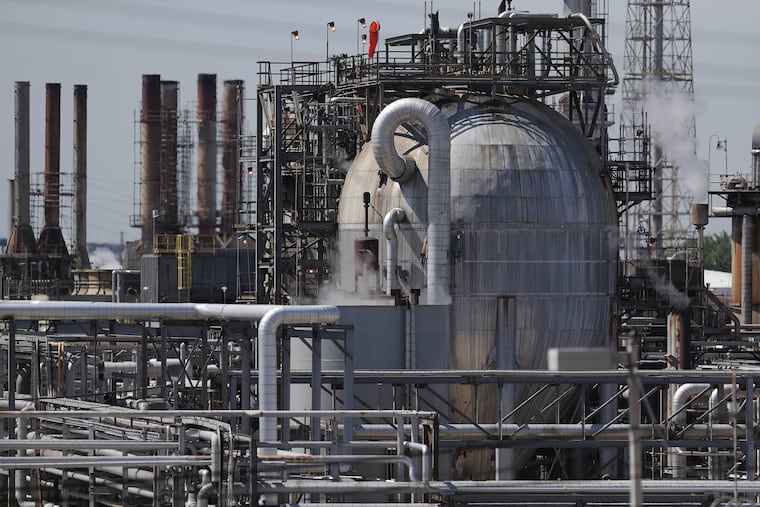Past time to listen to the public about South Philly refinery cleanup | Editorial
The remediation work already underway as part of the 2006 agreement continued after the facility was sold in 2012 and will continue despite the shutdown. The public should be part of that.

For no good reason, a public involvement process related to a crucial 2006 agreement to clean up the since-shuttered Philadelphia Energy Solutions (PES) refinery complex never happened as robustly as expected. One might say it barely happened at all.
Given the explosion that rocked the site last month, one might also assume it’s too late. But it’s not: The remediation work already underway as part of the 2006 agreement continued after the facility was sold in 2012 and will continue despite the shutdown.
In 2007, there was a single public meeting, as per the agreement. But there has not been another opportunity for people living with the 160-plus-year legacy of South Philly petroleum refining to publicly ask questions of those tasked with the cleanup. The involvement process is described in a Pennsylvania Department of Environmental Protection program called ACT 2 and was expected to continue as each step of remediation work received regulatory approval; approvals have happened, but public hearings haven’t.
And given indications that contamination may extend well beyond the 1,300-acre site — even potentially affecting aquifers that supply drinking water for much of South Jersey — many hundreds of thousands of voices have so far not gotten a formal chance to be heard.
“How this issue is handled may determine if these 1,300 acres become an asset or a liability to the City of Philadelphia and its residents,” Christina Simeone, author of a research paper on the facility for the Kleinman Center for Energy Policy at the University of Pennsylvania, said last week.
Privately, officials acknowledge that city, state, and federal agencies dropped the ball. This oversight enabled former owner Sunoco and a subsidiary firm, Evergreen, to overlook or ignore for a decade the notion that the public should have a say or at least a chance to say something as the remediation proceeded. The changing of administrations in City Hall, Harrisburg and Washington, as well as the necessity of getting the work started, have been cited as reasons. But to us these are feeble excuses, little more than the latest example of that cursed Philly shrug.
The June 21 explosion and fire that could have been catastrophic and did cause the likely permanent shutdown of PES has focused fresh public attention on the enormous complex. Evergreen’s awareness of the need to reinvigorate the moribund public input process also seems to have been reawakened recently; the phillyrefinerycleanup.info website features a live link, dated June 19, to a fresh "public involvement” plan.
No date has been given, but the site does promise that “a Public Information Session will be scheduled in 2019."
Officials view the new plan as a corrective means to retroactively satisfy the intent of the 2006 agreement, and move on. But whatever is done to ameliorate/paper over the public involvement deficiencies of the past is less important than what happens next.
That should include genuine, comprehensive, and even exhaustive process of reviewing the new data related to the remediation, as well as soliciting, listening to, and considering what stakeholders have to say about this enormous piece of contaminated real estate in the heart of the Philadelphia region.